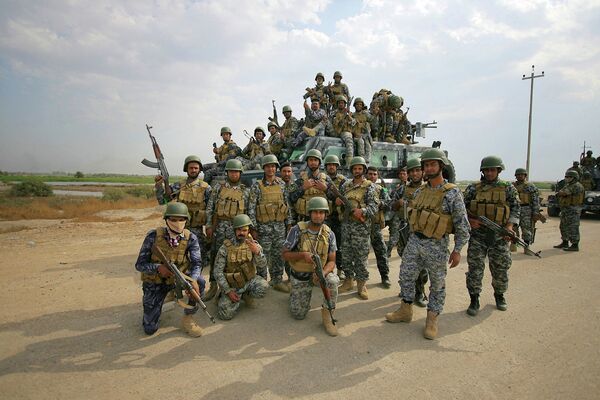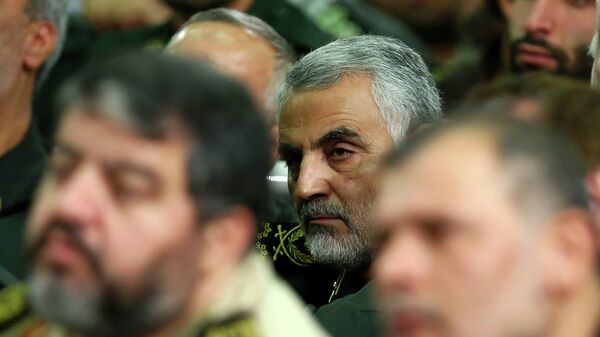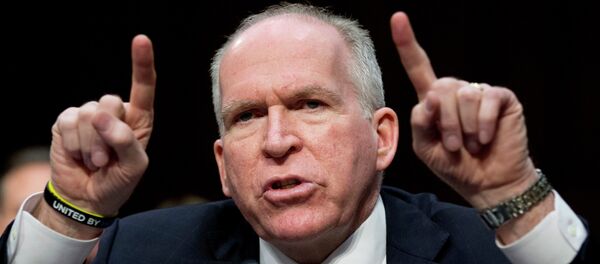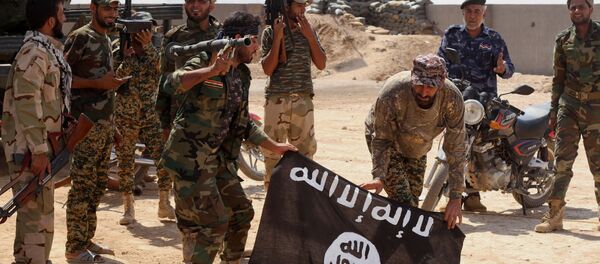The terrorist attacks in Yemen and Syria last week, which the Islamic State took credit for, served as a reminder of just how necessary it is for the world to eradicate the terrorist group. Weary of becoming embroiled in another expensive war in the Middle East, the United States has instead called on regional leaders to take action.
Leading that fight is Iran, which has sent fighters to join the Iraqi Security Forces. In January, Iraqi Shiite militia leader and lawmaker Hadi al-Ameri credited Iran – and in particular, General Qassem Soleimani – with saving Baghdad during an attempted Islamic State takeover last summer.
"If it were not for the cooperation of the Islamic Republic of Iran and General Soleimani, we would not today have a government headed by Haider al-Abadi in Baghdad," Ameri said during a memorial service for a fallen soldier, according to Fars News Agency.
But CIA Director John Brennan seems less sure of General Soleimani. Speaking on Fox News Sunday, Brennan said that Suleimani – and Tehran, at large – could destabilize Iraq even further once the Islamic State is defeated.
Brennan called General Soleimani “very aggressive and active,” and expressed fears that he and the Iranian government could forge a close ties with Iraq, only to turn against Sunni and Kurdish Iraqis.

"We’re not letting them play that role," Brennan said. "I think they’re working with the Iraqis to play that role. We’re working with the Iraqis, as well."
Going further, Brennan said he "wouldn’t consider Iran an ally right now inside Iraq."
This would seem to go against the expressions of several other US government officials. Last week, Tehran was removed from the Worldwide Threat Assessment list, in part due to its active role in stamping down Islamic extremism.
"The rise of ISIL has prompted Iran to devote more resources to blunting Sunni extremist advances that threaten Iran’s regional allies and interests. Iran’s security services have provided robust military support to Baghdad and Damascus, including arms, advisers, funding and direct combat support," the report reads.
On the same day that report was released, the New York Times wrote that Iran had sent lethal aid and was actively participating in reclaiming the war-torn city of Tikrit for Iraq.
Now that Iran has done exactly what the US encouraged it to do, American leadership appears worried that it may lose influence in the region.
"We are all concerned about what happens after the drums [of war] stop beating and ISIL is defeated," Chairman of the Joint Chiefs of Staff General Martin Dempsey said before the Senate Foreign Relations Committee earlier this month.
Writing on the subject, former presidential candidate Ron Paul expressed his support for Iran, citing Tehran’s success as a threat to American hegemony.
"[US politicians] desire the rest of the world to believe that the US is the only indispensable nation," Paul wrote for the Ron Paul Institute. "They want the rest of the world – and especially the American taxpayer – to believe that no problem anywhere can be solved without US involvement."
By stoking fears about Iran, Brennan appears to be placing fault on Iraq for its own instability.
"I think the fault really lies with a number of the Iraqis who wasted and squandered the opportunity they had after the government was reconstituted not to put at rest some of these sectarian tensions and not be more inclusive as far as bringing the Sunni community in," Brennan said Sunday.
Not mentioned in that statement is the fact that the Iraqi government only had to be “reconstituted” after the American government tore it down.





